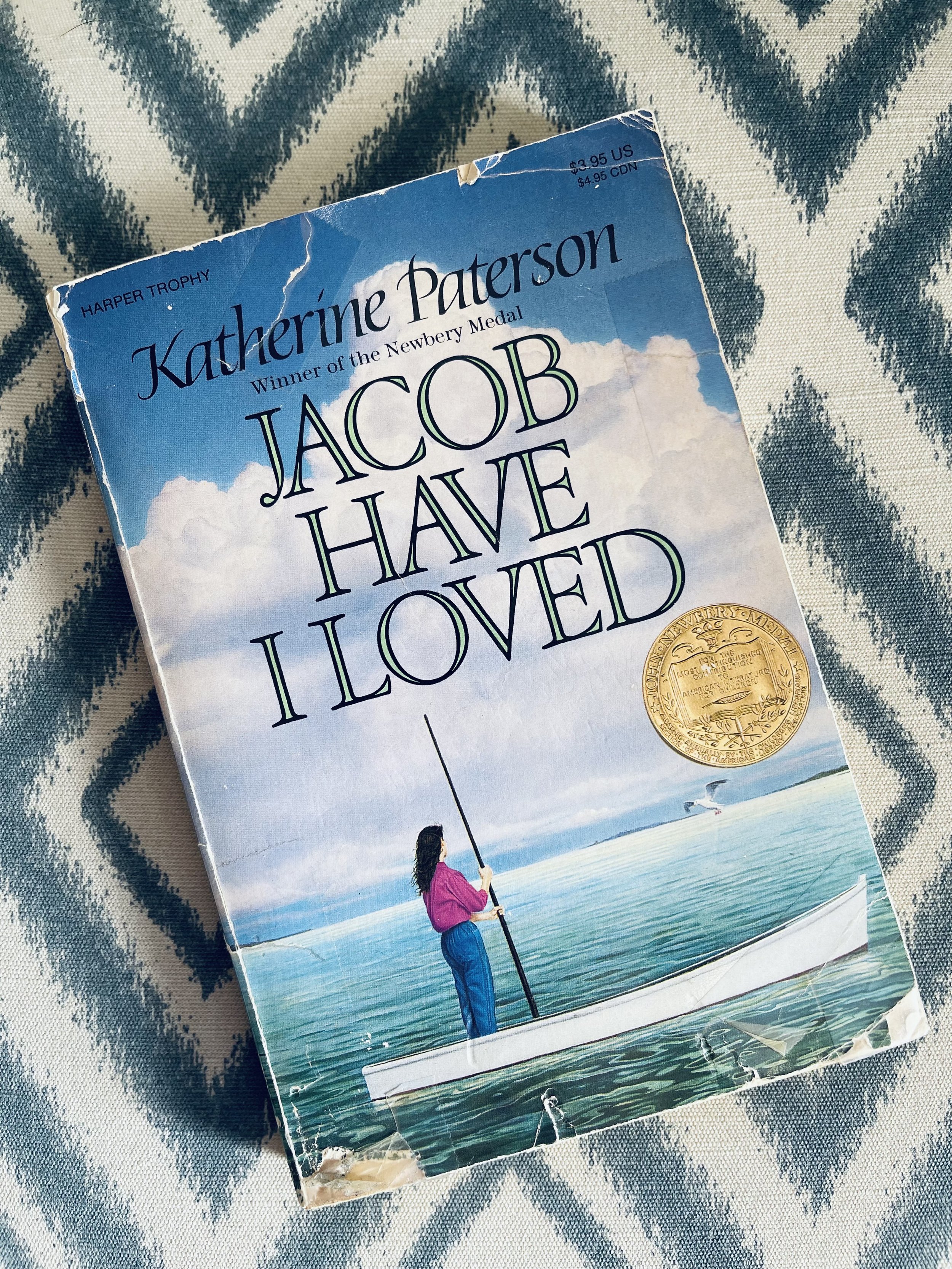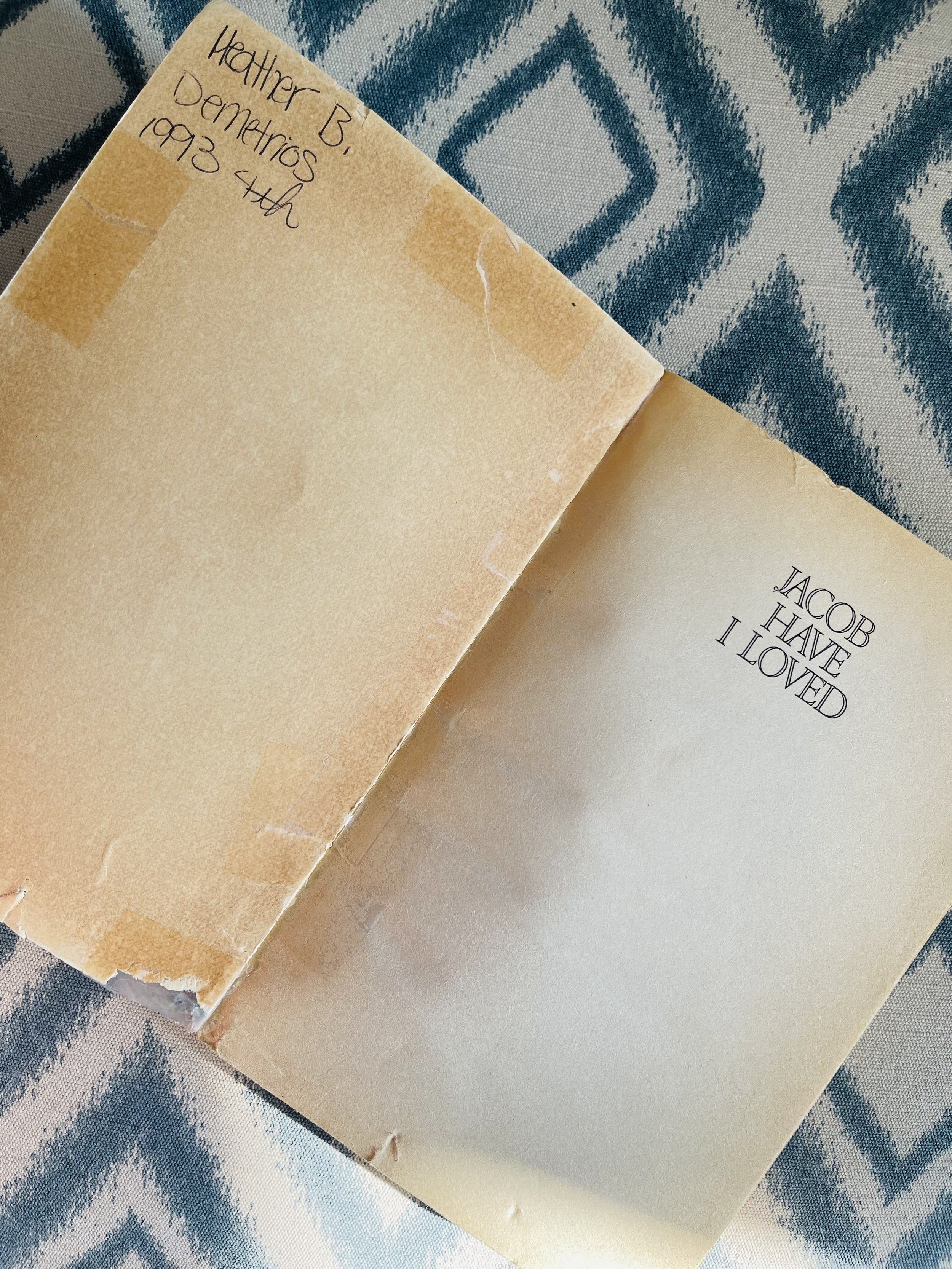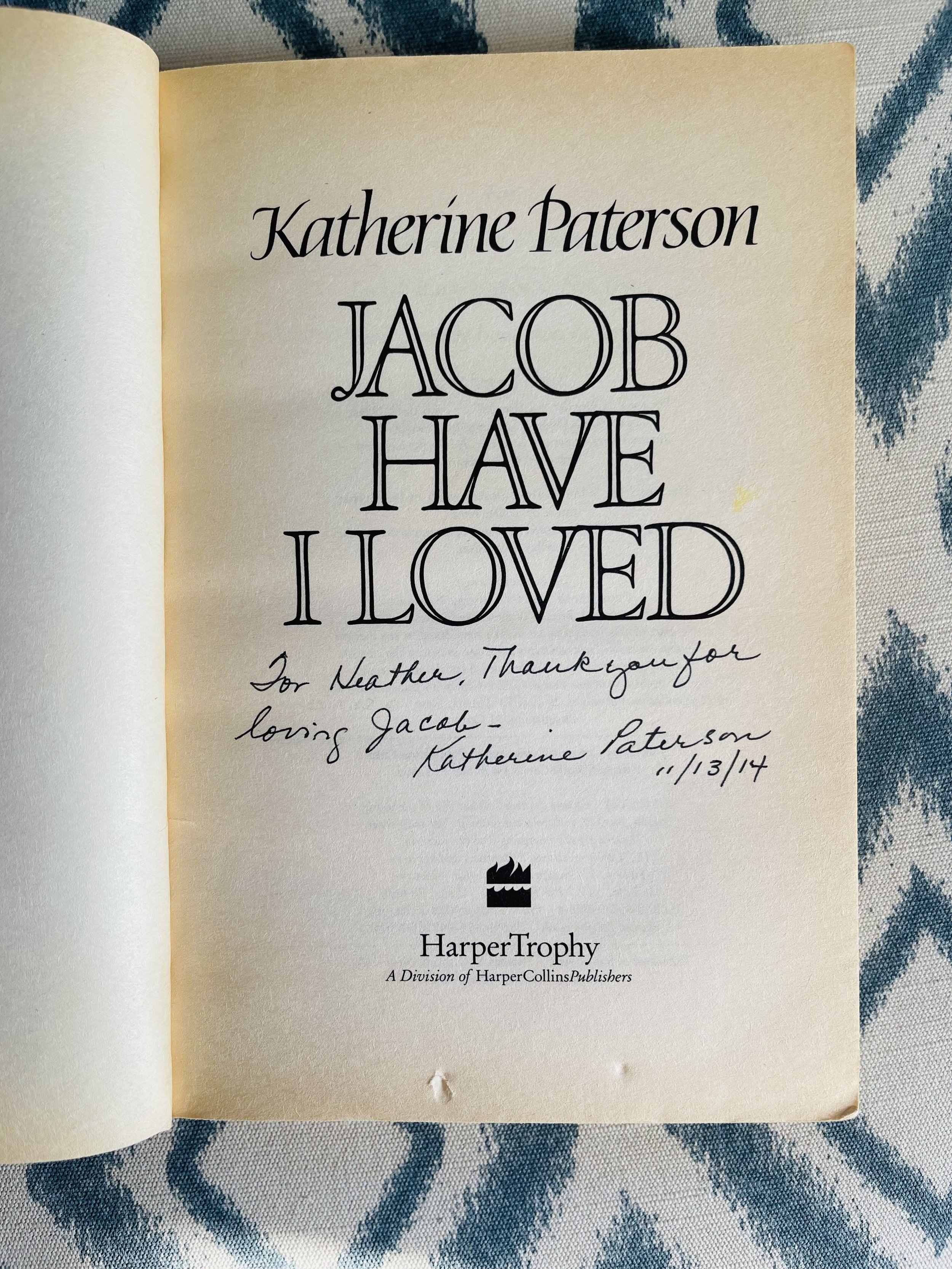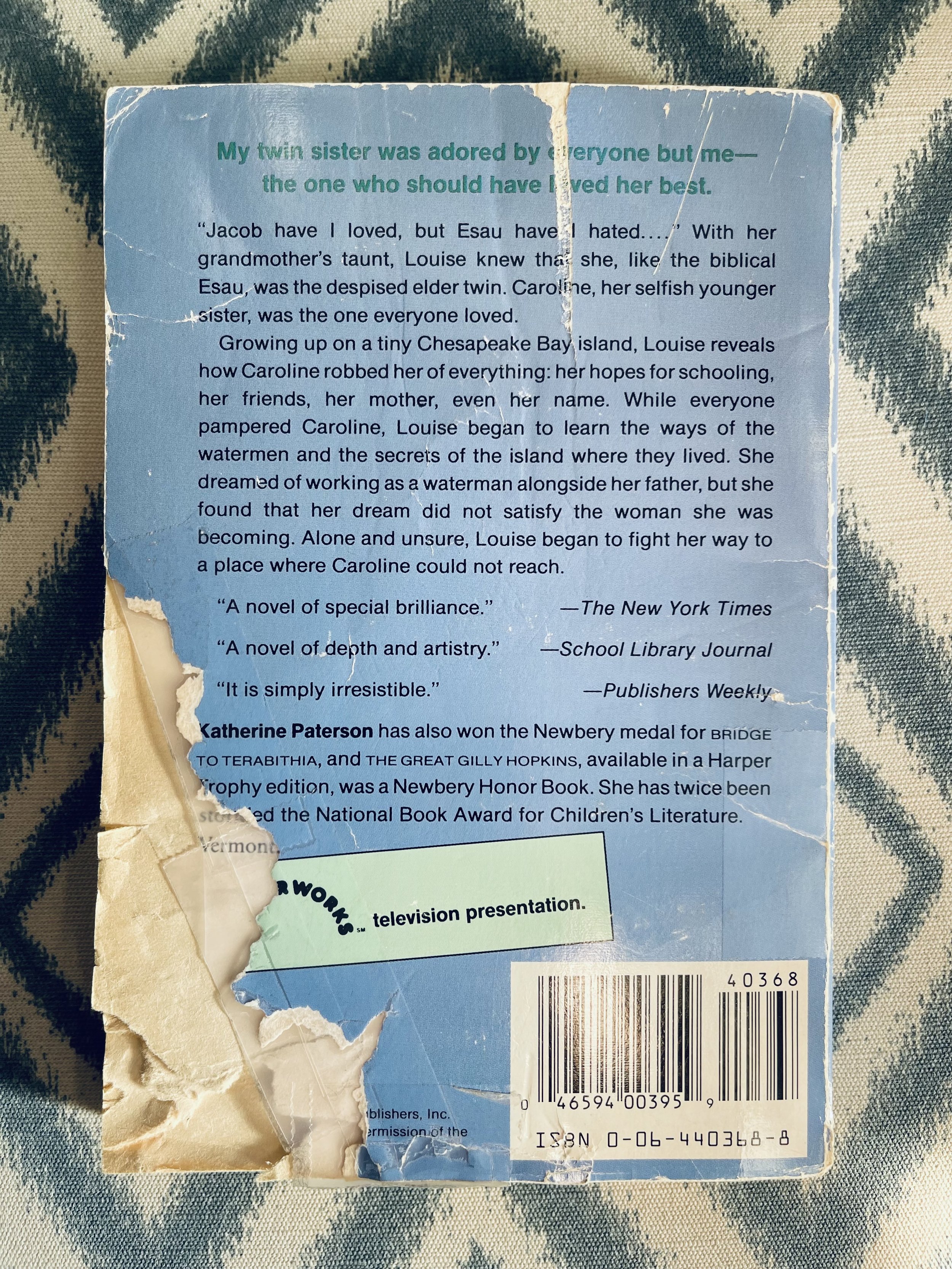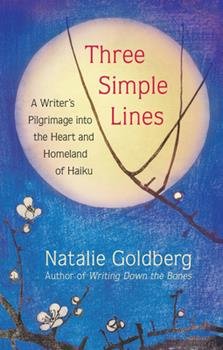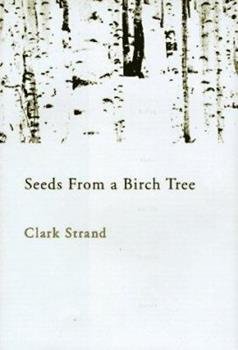“For me, writing is an act of reciprocity with the world. It’s what I can give back in return for everything that has been given to me.”
One of the most beautiful books I have ever read is Jacob Have I Loved by Katherine Paterson. It's a story about sisters, about unfairness and jealousy and feeling restless and hurting and growing. It's a story about home and found family and departures and arrivals.
It's a rare gem: writing that resonates, like a good cello. Writing that isn't flashy, a story that doesn't overstay its welcome, yet lingers in your heart forever.
In 2014, at the tail end of my debut year, I had the good fortune to have lunch with Katherine Paterson herself - just the two of us and my dear friend, the author Lisa Papademetriou. We'd both put up cash for a fundraising auction when we were getting our MFAs at Vermont College of Fine Arts - lunch or dinner with two of the college's former faculty. So after lunch with Katherine, we had dinner with M.T. Anderson that night. It was an extraordinary day in which I got to experience a true sense of lineage, and my place in a long line of storytellers.
I'd brought my childhood copy of Jacob Have I Loved to lunch. I really don't care about signed copies, but this was different. This was my adult author hands holding one of my favorite books, one I had read over and over as a little girl, then a young woman, a book that was a mirror. It said: It's okay you feel so weird and don't fit in. It's okay to walk away from people who don't love you well.
There are two things I'll never forget from that lunch:
One was that Katherine - the author of Bridge to Terebithia, for god's sake! - had said that every time she sits down to write she feels like a complete beginner.
When someone tells me that it a) comforts me a great deal and b) tells me they are working from beginner's mind. If you're scared, it means you're not playing it safe. It means you're showing up for a great work to come through you.
The second thing is that she signed my book:
For Heather, Thank you for loving Jacob
I about died. To think she was thanking me! Of course, I went home and my dog promptly decided it was a toy to be chomped on (impermanence!), but I taped it up and he managed to miss the signed page, bless him.
This month the word I've chosen is REVERENCE. When I began thinking about this post, the last page of Jacob Have I Loved came to mind.
There is a beautiful moment at the end where Louise, the protagonist, has finally come into her own. She's found her place in the world, her people, her vocation. The last sentences are hard-earned and come just after Louise has righted a wrong that had been to her, protected a child from being unseen, the Esau to a Jacob. They are:
Hours later, walking home, my boots crunching on the snow, I bent my head backward to drink in the crystal stars. And clearly, as though the voice came from just behind me, I heard a melody so sweet and pure that I had to hold myself to keep from shattering:
I wonder as I wander out under the sky...
These are the first words to a haunting Christmas song, one we can almost imagine Louise's self-absorbed twin sister, the thorn in Louise's side, singing. But for once, that beautiful voice doesn't hurt.
I like this version, if you'd like to sit with it for a moment.
The Reverent Writer
Close your eyes and say the word out loud: "Reverence."
I love the natural hush of that first R, the alto reverberation as it slides into the luscious V and then ends on that slight hiss of the CE, like the sound a pebble beach makes when the tide pulls back to the sea.
It's been a year, hasn't it? I feel we're due some reverence, and I think our writing souls need it now more than ever. The crass commercialism, the twitter wars, the thinly veiled egoism of Instagram (I'm off it now - more on that in another newsletter), the nightmare of COVID, the attention economy, and geopolitical everything. Another school shooting, women's rights on the line - I could go on, but I won't because
we
need
some
REVERENCE.
Our writing, our stories, and all the life we are called to breathe onto the page are born of the wondering as you wander out under the sky.
This humble wondering can lead to reverence for this life, this planet, this present moment - a moment we desperately want to meet with our words. This is but one way to explore mindfulness for writers.
But how do we tap into reverence in 2021? Our bandwidths are fried by our inboxes and phones and all the other flotsam and jetsam of the modern world. The demands on our time and attention are greater than ever before, and the world is just plain terrifying.
I think what we need is what author, scientist, and indigenous activist Robin Wall Kimmerer calls "everyday acts of practical reverence."
I have a writing practice that can support you as you make space in your life for these every acts and cultivate the ability to experience reverence daily, both on and off the page.
“Haiku is a refuge when the world seems chaotic, when you are lost, frightened, tangled, and nothing is clear.”
The Way of Haiku
In next week's Well Gathering, we'll be diving into a practice that has allowed me to find some real reverence in my everyday life - a practice that has taken my writing to a new level because it trains me to pay attention, to wonder as I wander: the Way of Haiku.
The two books above are great primers in this practice.
When I first introduced this spiritual practice to the writers who were on retreat with me last month, most of them balked. We're not poets, they said.
They were mollified when I talked about haiku as a way to wake up, to find liberation through words, to practice mindfulness with intention while at the same time honing their writing skills. It's also great fun. My inner critic is never around when I practice haiku.
The writers who were most skeptical were the ones who sent me emails filled with haikus about all sorts of things - the structure, it seemed, was liberating, and they were seeing the world with new eyes.
There's always time enough to write three lines.
It's playful and there's a wonderful sense of having finished something when that third line is through. In the busy holiday season, it might be just the thing to inject a few words and a bit of mindfulness in your day.
So this is what I do in the morning, or when I have a chance some time during the day:
I sit down and I pay attention to what's happening around me. There is a notebook and pen in hand.
A line comes to me and I count the syllables: five.
Another line: seven.
A third line: five.
I make sure to add a kigo - a word or image that grounds us in the season, a key component of haiku. I remind myself that haiku is less about you and more about a moment of wakefulness, one that you articulate as both a gift to yourself and the reader.
Of haiku, Allen Ginsburg said: “The only real measure of a haiku is upon hearing one, your mind experiences a small sensation of space – which is nothing less than God.”
Good enough for me.
I hope you'll join us next Wednesday to explore this practice.
If you're tired of making promises to yourself that you don't keep...
If you just don't know how to get your bum in the writer's seat...
If you know you're holding yourself back, but you don't know how to flap those wings and fly...
If you're fed up taking a course here or there and not improving...
If something in you wants so badly to get out and you know you can't do it alone...
In my next newsletter I'm going to be sending you a special PDF to spend some time exploring 2021 and looking ahead to 2022.
We'll be digging into discerning what word might guide the new year, writing in response to powerful quotes, jotting down notes about each monthly word we've worked with in this space in 2021, and more. It's going to be special and lovely and my holiday gift to all of your dear hearts.
And now, a haiku I wrote to express the end of a year and hope for the creativity and work that will come out of it for the one to come.
.
.
.
The last leaf, falling
A hard worker gets some rest
The year is compost

